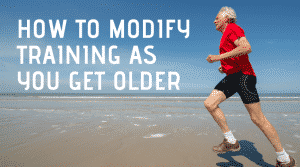The term masters has a bad connotation. I mean it sounds old. Especially for those “younger masters.”
I remember racing the Masters Track and Field Championship at the ripe age of. Wait for it. Thirty. Yes, I was thirty years old and racing the 800M as a master.
What? How can I be a master? A lot of sports define master in similar context.
Let me preface the remainder of this post by saying, defining one as a master is nothing more than a label. In the case of ultra marathons, the 40-49 age group is one of the top groups in overall finishes. The same is true at Ironman, 5K, marathons and more.
Masters definition does not mean you are slow. Nor does it mean you cannot compete or challenge yourself. Not at all. Not one iota.
But you do need to stay focused as discussed below and explained further in The 3 Rules For Running Success As A Master.
So What Does It Mean To Be A Masters Athlete
Being a master involves a deeper understanding of who you are, your age, your goals and more.
- Time Constraints
- Been There Done That
- Our Changing Body
There’s the reality that many “masters” have far greater time constraints than someone in their 20’s. There is the reality of a body that is changing. And the reality that as we get older, our list of accomplishments has grown.
Bonus Content
Learn more about what it means to become a masters athlete as I interview Katie Holmes, author of RunYoung50.co.uk. A blog focused on masters athletes including interviews with some top UK runners.
Time Constraints
In your early 20’s you have a job, student debt and a lot of free time.
Want to spend 30 hours a week training? Go for it. Who do you have to answer to other than your employer? Maybe a significant other?
In your 20’s you are not faced with choosing between the joy of picking up your kids at school or working out.
I love to cook dinner for my girls. Which means I need to sneak my runs in early. But I also like to see them off to school. So I have a narrow window to get exercise in.
As we get older we all have growing time constraints. Decisions we need to make that no longer affect just ourselves. But rather family, friends, significant others, careers, financial obligations.
And it gets complicated. Schedules overlap. And often we are forced to forego what we want to keep things turning.
Bonus Content
Learn more about managing time constraints as I interview Matt Orlando, author of TheRunnerDad.com. A blog focused on finding balance and as Matt says “being a superhero to your kids.”
Been There Done That
I admit I hate that expression but it does resonate. And makes a point.
I remember in my early 30’s I wanted to do Ironman. And I didn’t have kids yet. So I made a conscious decision to focus on Ironman now. To “get it out of my system.” I trained fairly hard. And I did a number of races.
I loved it. The challenge at the start of the swim, knowing I would travel 140 miles inspired the hell out of me. I wanted that finish so bad. And with each race I wanted it more. Until my last.
Towards the end of my Ironman career I lost the desire to cross the tape. The challenge was no longer.
Why? Because I knew I could do it. Which is the same reason I sold my run shop after twelve years of being in business. I was stagnating.
Life is about growing. About reaching new heights.
Motivation to push forward is often inspired by the fear of the unknown. An urge to discover. Yet once that unknown is discovered our motivation often wanes.
Our Changing Body
We need to accept it. A runner at 40 may very well beat a runner in their 20’s. But not necessarily the same person. What I mean by that is your ability as you grow older is different than when you are younger.
Recovery from a hard track workout in your 30’s is harder than your 20’s.
The ability to jump into a marathon in your 20’s on no training is greater than in your 50’s.
What is really hard is acceptance and adjustment. Acceptance that we are getting older. And adjusting performance to what our body can handle today. Not what it did yesterday.
Perhaps in your 20’s you could break 20 for a 5K. You could place in the top ten overall at almost any local race. But today you are focused on your age group, and that alone.
To learn about how our body changes and the acceptance we need to make, please read How To Accept Change And Progress As A Master.
Bonus Content
Getting older doesn’t necessarily mean getting slower. As proven through our interview with Allie Burdick, athlete, master and author of VitaTrain4Life.com. A blog focused on training and much more.
But Wait A Minute
I’ve seem some amazing physical accomplishments in my life. Daniel Komen running two consecutive sub 4 miles. Yes back to back sub 4 miles. Amazing right?
I am still in awe of the strength of those who can run 4:45 pace for 26.2 miles. I mean, seriously?
Or what about the high jump record? 8 feet and one quarter inch (2.45 M). Who does that?
But those pale in comparison to two accomplishments that truly standout. Less because of what they did. Though one is right up there. But more because when they were done.
Take the first. Diana Nyad swimming 110 miles from Cuba to the Florida Keys. Sure Diana was an accomplished athlete. An Olympic swimmer in her day. But she did this swim in her 60’s.
She knew at that stage in her life, with all her accomplishments that she still needed to shake things up. That life was too predictable. Too safe. She needed to push into her discomfort zone. And she did it at the age of 64. After four previously failed attempts.
Ironman At 65
But probably my favorite is a woman I met at a trade show a number of years back. I forget her name. Even if I did, you wouldn’t know it. She was not up front. Nor in the pack. No, she was in the back. Heck, she may have come in last.
So what’s so inspiring about that? It was her first Ironman. And she was 65.
Have you ever trained for Ironman? Ever ridden the bike for 100 miles with cars whizzing by you? You think running and cars don’t mix. Try bikes and cars.
Ever done an open water swim alone? You’re in the middle of a lake, can’t see through the murkiness of the water and you have to focus on survival in many ways.
This is not a treadmill you can step off. No this is a lake which ups the anti. The risk is very real.
Imagine your doctor, family, heck grand kids saying “why are you doing this?” You are too old, it’s too dangerous. Fear and risk are instilled. Not motivation.
Yet she pushed through all of that. She accomplished her goal. And she was a master.
So In Closing
Defining yourself as a master is an age based reality. But in label only. Your athletic career can continue. And for many it will flourish.
So don’t let a label stand in the way. Though you will have to accept some realities, don’t look at them as roadblocks.
Life is constantly evolving. It is our acceptance of such that bares even greater fruit. So be proud to call yourself a master. I know I am.
Get Your Very Own Master’s Running Guide
We have the ultimate Masters Running Guide just for you. One tailored to Master’s Running. Covering every aspect of training.
- Injuries and Health
- Nutrition
- Inspiration
- Workouts And More








2 Responses
From the Sports Medicine Clinic at UMASS in Worcester, Ma, I recently suffered thru an injured hamstring and priformis injury. This was clearly from over training. Dr Mancini there came up with what he stated was factual evidence that the following days training will lead to injury, run 3 days a week =3% chance of injury, 4/days=30%, 5/days =75%, 6/days =99%. He also told me I could keep my milage at 40/week just do it in 3 days. So far this is working, I’m fresher, all quality no junk. Other days are x-train with main emphasis on legs/core and 1 day off. I will message back in a month with race results
Glad to hear you are staying healthy. I think there a lot of factors in overall running health. I run 6-7 days a week but really watch the purpose of each workout. Some intense, some pure recovery, others pure distance, etc. Fortunately, and knock on wood I have about 50,000 miles in my legs and almost no injuries.